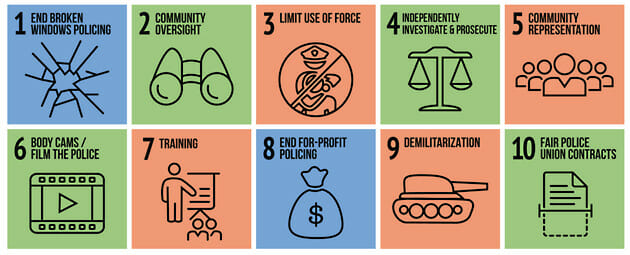Today, I Am Pissed At Black Lives Matter. They Aren't Doing The Hard Detailed Work Change Requires
Like many of the people who are protesting today in St. Louis the acquittal of Jason Stockley (please, let's hope it stays peaceful) I am angry about the lack of accountability for this behavior:
Smith tried to flee from Stockley on Dec. 20, 2011, following an alleged drug deal, authorities said. During the pursuit, Stockley could be heard saying on an internal police car video he was going to kill Smith, prosecutors said.
Stockley, riding in the passenger seat of a patrol vehicle with his personal AK-47 in one hand and department-issued weapon in the other, shot at Smith’s car, according to St. Louis Circuit Attorney’s Office spokeswoman Susan Ryan and charging documents.
At Stockley’s direction, the driver of the police car slammed into Smith’s vehicle and they came to a stop, court documents said. Stockley then approached Smith’s car and shot him five times with his service weapon.
Stockley’s lawyers said he fired in self-defense because he believed Smith was reaching for a gun but prosecutors said the only gun recovered from the scene had only Stockley’s DNA on it.
Stockley was acquitted of all charges today. Just read the above and remember that Smith was not some terrorist about to detonate a nuclear weapon, he was involved in a drug sale. And here is this police officer chasing him in gunzerker dual-wield mode, crashing his car into him and shooting him after stating his intention to do so over the radio.
But I am also pissed off at BLM. Why? Well, I suppose if they encourage folks to violence today I will be mad at them for that. But I am really mad at the total failure they have become as a change organization. For years many lone voices have tried to point out issues with police violence and the lack of accountability for it. BLM did a great job of substantially raising awareness of these issues through protests and disruptions. But protest and disruption (and collecting donations) is all they seem to be able to do. The time is long past that they need to be leading the hard work of renegotiating police union contracts and changing local laws. BLM should have been ready for a day like today with a list of model legislation they can be waving in front of cameras saying this is the list of things we need to be doing in every city to prevent a repeat of this travesty. Instead, all we will watch is more protests and violence.
Why do I single out BLM? Why is it their responsibility? Because they have sucked all the oxygen out of the room. They wanted to be -- and are -- the de facto leaders on this issue. They get all the funding. They get all the celebrity support. And they are not doing jack except perhaps alienating people they will need to work with to make progress. They actually had a good plan in the beginning that they have since abandoned in favor of posturing and virtue signalling. In contrast look at the ACLU, the IJ, and ALEC and how they spend their resources. It reminds me of exactly how the Trump Administration operates, as so ably described by Megan McArdle today. Lots of posturing, no ability to do the hard, detailed work to make change.
